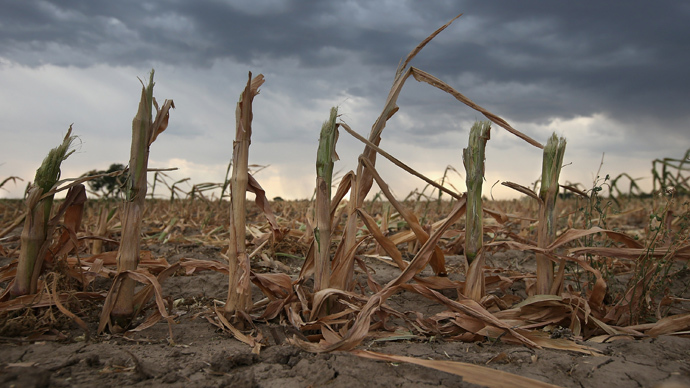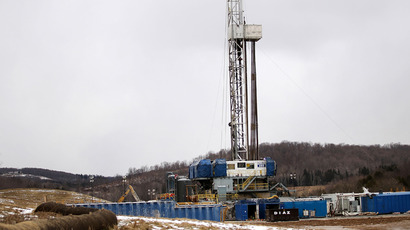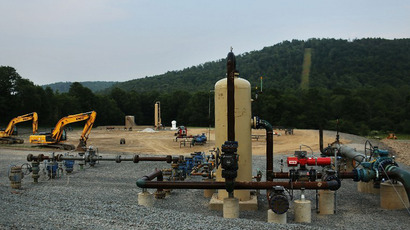Unintended consequences: US ethanol revolution causes 'ecological disaster'

A new investigation has revealed that the United States’ ethanol mandate is severely harming the environment without producing enough tangible benefits.
Since the Obama administration began implementing the ethanol mandate – requiring a certain level of the biofuel to be added to the gasoline supply – the Associated Press found that the damage done by the program has dwarfed any suspected benefits, many of which failed to materialize in the first place.
Since President Obama took office, roughly five million acres of land set aside for conservation have been lost in the drive to harvest more corn for ethanol, the investigation found. Farmers have plowed into land previously unused for farming, releasing amounts of carbon dioxide into the air that would take native plants decades to reduce naturally.
Billons of pounds of fertilizer were also used on land, some of which has leaked into drinking water, rivers, and has expanded the Gulf of Mexico’s dead zone, which can no longer support life.
"This is an ecological disaster," said Craig Cox with the Environmental Working Group to the AP. Cox’s group, once a White House ally, now opposes the administration’s ethanol policies.
The effectiveness of ethanol as a reducer of carbon dioxide emissions has also been greatly exaggerated, according to the investigation, making it unknown whether or not ethanol could ever be improved enough to help combat the effects of global warming. On top of this, the price of corn has more than doubled since 2010.
As a result, the ethanol industry has come under fire from a surprising coalition of oil companies who oppose the mandate and green groups who consider corn-based ethanol to be a net harm to the environment.
The ethanol industry was quick to hit back at the AP investigation, however. "There's probably more truth in this week's National Enquirer than there is in the AP story," said the Renewable Fuels Association's Geoff Cooper on a press call, according to the National Journal.
The industry denies that the ethanol mandate is the root cause of conservation land loss, and said the data showing more corn going into fuel than food in 2010 is misleading.
For now, at least, the Obama administration is standing behind the policy, partly to avoid a legislative battle with the agriculture lobby, and partly because it believes that endorsing corn-based ethanol will promote the development of biofuels that are ultimately much cleaner and more efficient.
"That is what you give up if you don't recognize that renewable fuels have some place here," Environmental Protection Agency (EPA) administrator Gina McCarthy said to the AP. "All renewable fuels are not corn ethanol."
Regardless, the tangible benefits of ethanol have become low enough that the EPA is set to lower the amount of ethanol required in the gas supply. Critics of the mandate are now suggesting the government scrap it entirely, while the Washington Post also published a story today, headlined “Time to kill the corn ethanol mandate.”
Though the ethanol mandate was signed into law by President George W. Bush before his second term ended, implementation fell to the incoming Obama administration. The EPA was skeptical from the outset, due to concern that planting and harvesting so much corn would release enough carbon dioxide into the atmosphere to make the benefits of ethanol uncertain at best.
"I don't remember anybody having great passion for this," Bob Sussman, who worked on Obama's transition team and recently retired as EPA's senior policy counsel, said to the AP. "I don't have a lot of personal enthusiasm for the program."
With support from the Department of Agriculture and some of Obama’s senior advisers, however, the program went ahead. As a result of inefficient regulations and poor predictions regarding the biofuel’s viability as green energy, Obama officials have realized that the ethanol mandate is inadequate policy. Obama himself did not even refer to ethanol in his last major speech on the environment, though whether any action is taken outside of lowering the ethanol requirement for gas remains to be seen.














